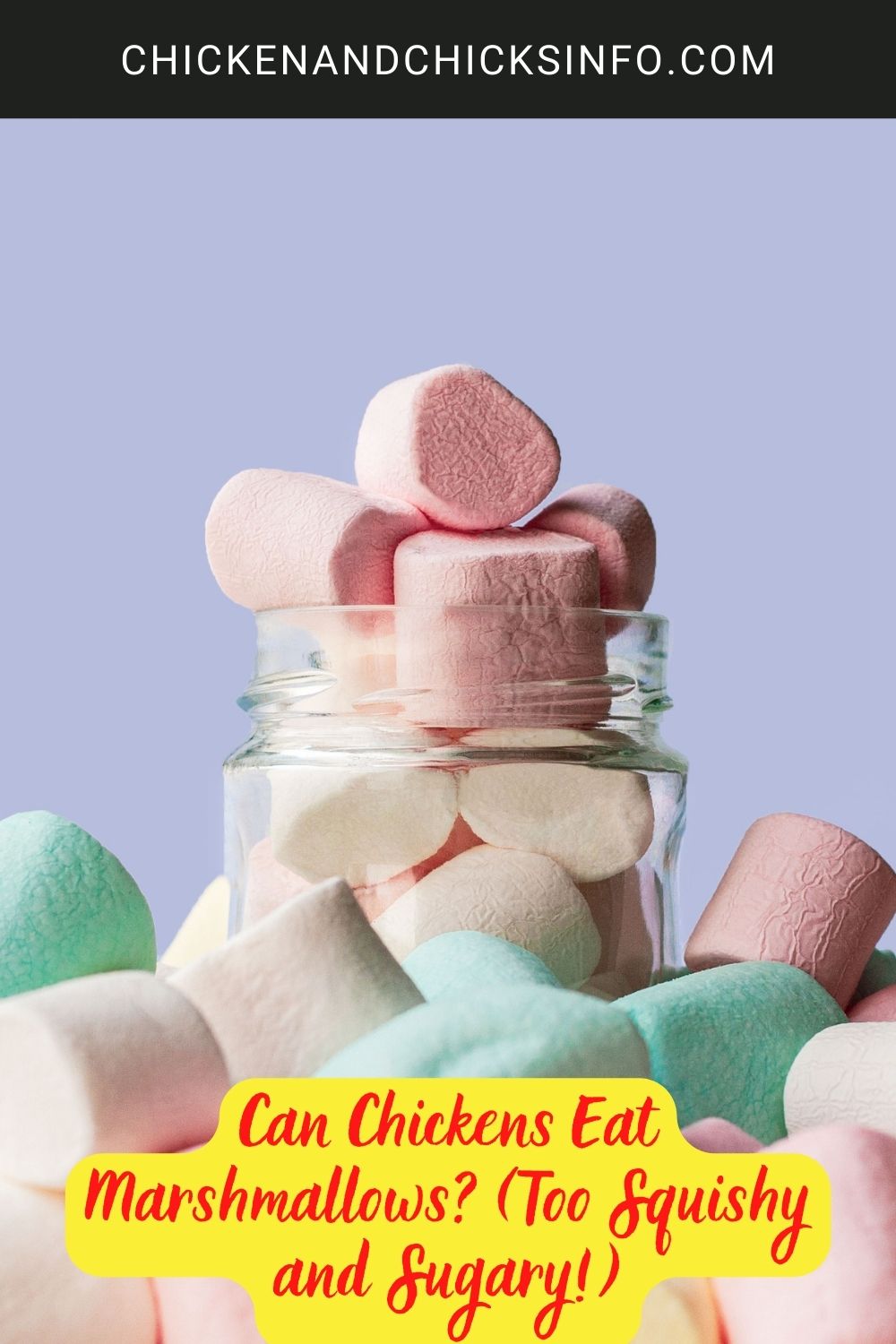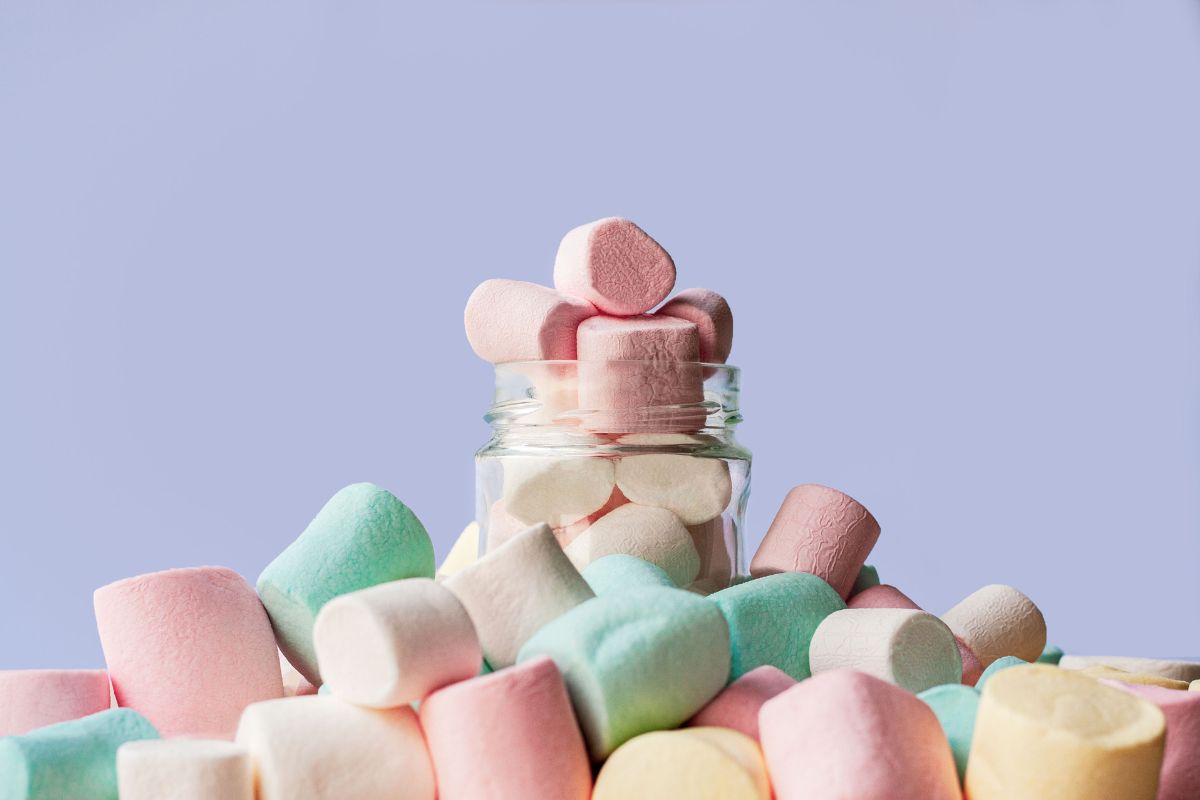
Chickens can and will eat marshmallows if you offer them this sugary treat. It’s not advisable, however, as they pose a choking hazard and are far too high in sugar content.
Jump to:
What Are Marshmallows Made Of?
For basic marshmallows, there are really just for ingredients:
- Sugar
- Water
- Air
- A whipping agent like gelatin
Not the kinds of ingredients you find in chicken feed, that’s for sure!
It’s actually quite an interesting process, how marshmallows are made. These ingredients go through a process of being heated, whipped, mixed, and set to make that final squishy form we all know so well.
Are Marshmallows Bad for Chickens?
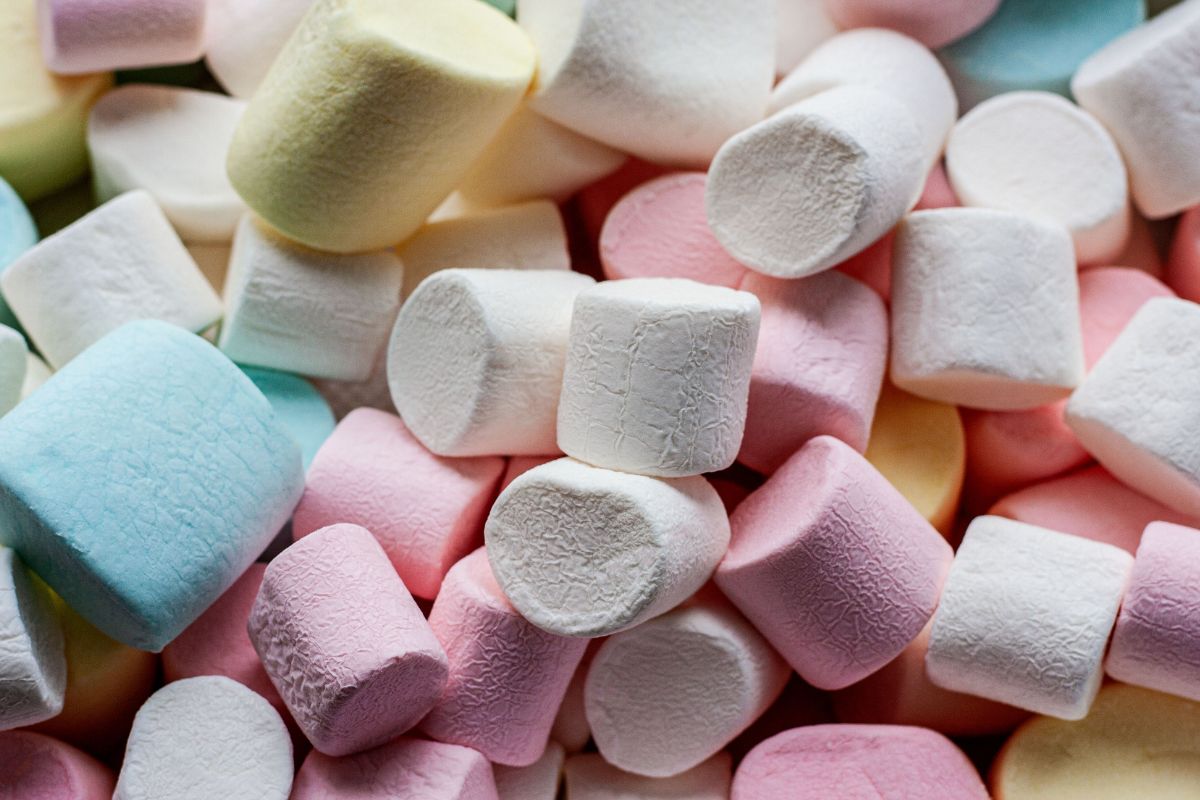
In a word - yes.
Marshmallows are not toxic, poisonous, or harmful due to any ingredients used. So, don’t panic if you’ve been tossing a few to your hens here and there.
The main issue is that they’re pretty much just sugar. Sugar isn't great for chickens, pretty much as it's also bad for us in large amounts.
But you have to remember that chickens are much smaller than we are. Plus, their bodies are not designed to process sugar as effectively as ours is.
So, that small squidgy marshmallow isn’t so small to them.
Personally, I wouldn’t give my flock any marshmallows. There are so many other foods that are good for them (as you’ll see below), you shouldn’t be short of options.
Then there is the risk of choking. Marshmallows are not recommended for most household pets like cats and dogs due to the fact that they present a choking hazard.
Don’t forget, chickens do not even have teeth. So, unlike dogs that will at least try and chew them a little before swallowing them, chickens will simply swallow marshmallows whole if they can't break them up.
Chickens have an organ called a gizzard that does the “chewing” for them. But with marshmallows being so chewy, I also wonder if this could cause digestive issues.
Some Foods to Avoid Giving to Chickens
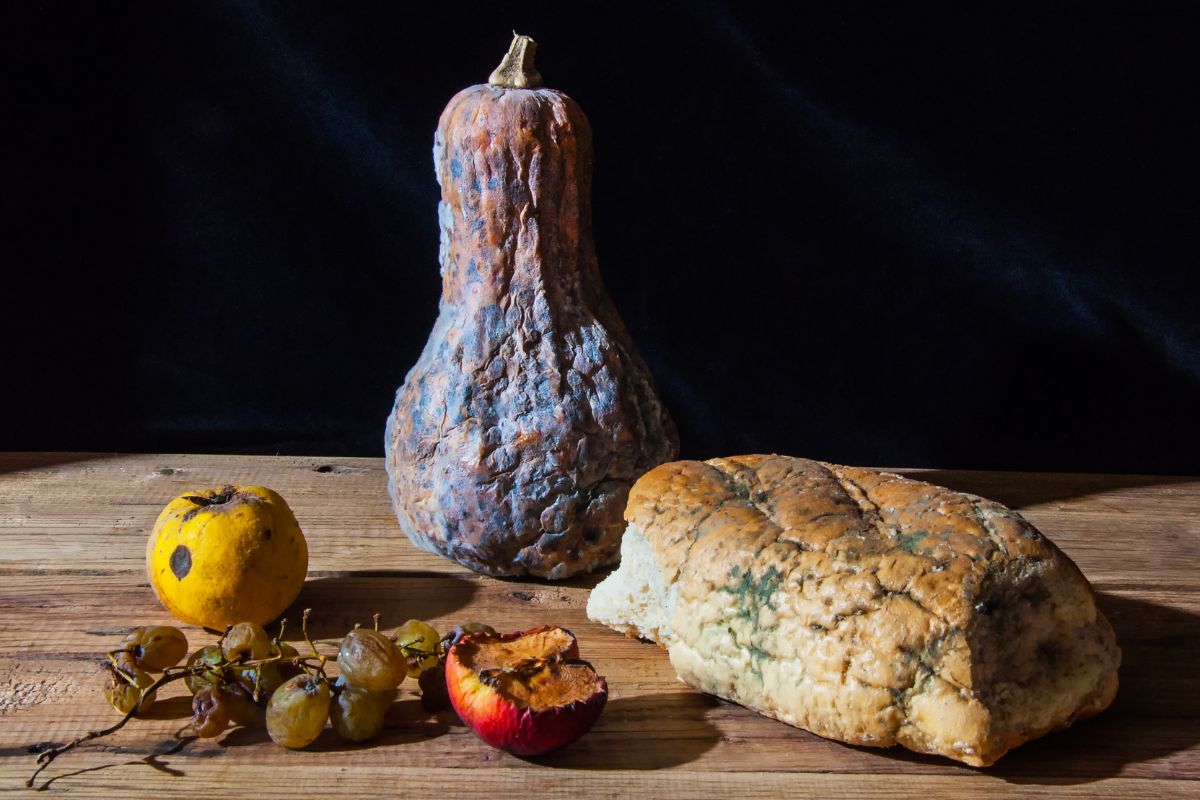
Marshmallows aren’t ideal for chooks, but there is nothing toxic or harmful about them.
Some foods, however, do contain compounds and chemicals that are harmful to chickens, so you have to be careful when giving them new foods.
Here is a brief list of some of the common household foods a lot of people aren’t always aware of, that are potentially harmful to chickens:
Nightshade Vegetables - The Nightshade family of vegetables, which includes potatoes, some peppers, eggplant, and tomatoes are problematic.
This group produces a toxic compound called solanine, which is toxic to chickens. It’s only found in some parts of these vegetables and plants, such as when potatoes and tomatoes are green, however.
It’s worth researching this food group to be on the safe side.
Raw Beans - Most raw or undercooked beans contain a harmful compound called lectin. In fact, it’s said that this compound can be fatal, even in small amounts. Only give cooked beans to your flock!
Coffee and Teas - Coffee and some teas contain two compounds that are known to be harmful to chickens; caffeine and theobromine.
I’m not thinking so much about your hens sipping a cuppa. More so if you’re recycling tea bags and coffee grounds in your yard.
Chocolate - Cocoa and chocolate products also contain the same two harmful compounds as coffee, so it’s no surprise choc is on the banned list for chooks too.
Moldy Foods - No one wants moldy foods, right? If you’re trying to save wastage with foods that are no longer in date, check carefully for mold spores. Also, don’t leave food outside too long to spoil.
Salty Foods - Chickens do not require much salt in their diet, and they’ll get what they need from their feed. Any more can be hard for them to digest and cause some issues.
Foods and Scraps That Are OK for Chickens
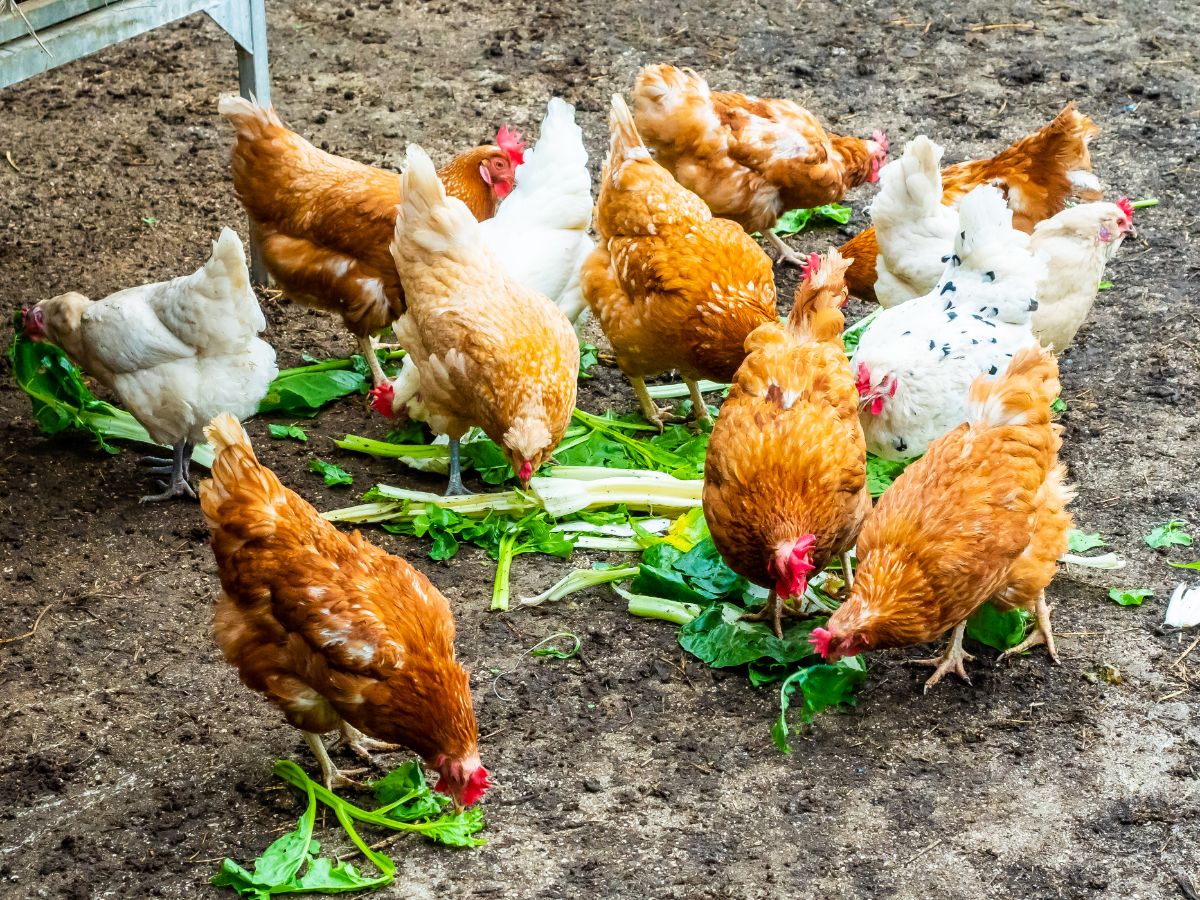
Treating chickens to table scraps and other foods is easy - most foods are fine for them in moderation, and they aren’t picky!
Here are some of the foods that chickens commonly eat:
Vegetables – Vegetables are great because they typically contain loads of antioxidants, minerals, vitamins, and other good nutrition.
Veggies like carrots, broccoli, squashes, and yams, are all great. The best part is that your chickens will eat the parts you don’t.
Fruits – Fruits are great because they’re also a good source of nutrition, and they are also easy to feed for the most part. I bet your flock will gobble up apples, banana, melons, and all kinds of berries.
Grains – Grains make up a large part of commercial feeds. They provide a good range of nutrition and help encourage natural foraging behavior. Try giving your flock some wheat, oats, quinoa, corn, cornmeal, (even cornbread as a special treat) etc.
A lot of people end up sharing leftovers from cooked meals too. As long as it doesn’t contain any harmful stuff, or too much salt, sugar, etc. Just double-check or don’t give something to your hens if you’re not 100% sure.
In Summary
Chickens have specific dietary requirements, most if not all of which are met with a quality commercial chicken feed.
You can give them some table scraps and other foods in addition to their feed, as I’ve explained. If you’re doing so, I recommend sticking to the healthy options like fruit and veg, or foods that are a good source of protein.
It’s better for your hens in the long run.
Roasting marshmallows on an open fire is fun, we do it ourselves here a lot in the summer. Just keep all the marshmallows for the humans and the chicken-friendly foods for the chickens.
